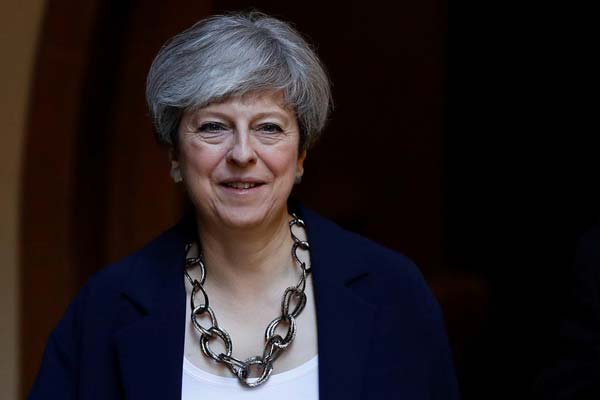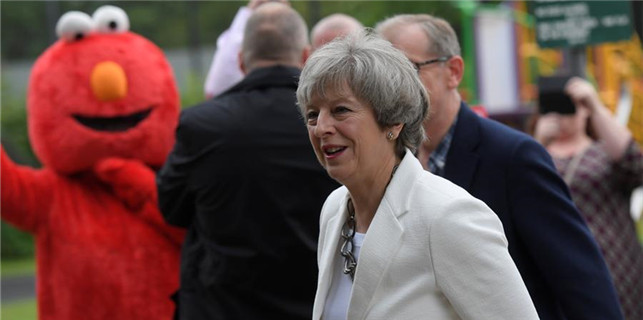UK's Theresa May builds government despite uncertain support
British Prime Minister Theresa May rebuilt her government despite concerns that Thursday' general election result left her too weak to continue as prime minister.
|
 |
|
Britain's Prime Minister Theresa May leaves after a church service in Sonning, Britain June 11, 2017. [Photo/Agencies] |
Her appointments of Damian Green as first secretary of state and Gavin Barwell as chief of staff were seen as indications that May will be much more pro-European as she prepares to enter negotiations on the UK's departure from the European Union.
David Davies, the minister for exiting the EU said that the start of talks with the EU, which were scheduled for June 19, may be postponed until later that week.
May also appointed Michael Gove, who she fired when she became prime minister, as minister for the environment.
May called the election when opinion polls suggested that that the Conservative Party was almost 20 percent ahead of the opposition Labour Party but the lead was whittled down as the prime minister failed to convince voters that she was the right person to lead the country.
The Conservatives gained 318 seats to Labour's 262, which left them short of an overall majority. The Conservatives will try to gain the support of the Northern Irish Democratic Unionist Party and its ten MPS.
The election result left May with few options in appointing her cabinet. It was widely expected that May would not allow Philip Hammond to continue as chancellor of the exchequer but it appeared she had no choice but to keep him in the post. Other senior figures such as Boris Johnson, the foreign secretary, and Amber Rudd, the home secretary, also kept their jobs.
The former chancellor the exchequer, George Osborne, who is now an editor of a London newspaper said that May was too weak to continue as prime minister. He described her as a "dead woman walking" on Sunday.
The Conservative-supporting website Conservative Home found that 60 percent of Conservative Party members believed that May should resign as prime minister and trigger a leadership election. The winner of a Conservative Party election would then become prime minister as May did following the resignation of David Cameron after the UK voted to leave the European Union in a referendum last year.
Much of the criticism of May's general election campaign was focused on her two unelected chiefs of staff Fiona Hill and Nick Timothy. Both resigned amid harsh criticism of their behavior despite observations that they were both appointed by May and managed by her.
Many commentators were concerned by May's intention to govern with the help of the DUP, which is seen as going too far in its view on gay marriage, abortion and other social issues. Some believed that the DUP's participation in the central government would damage its ability to participate in the devolved government in Northern Ireland.
Former Tory leader Lord Hague has said "very serious lessons" had to be learned by the Conservative party but warned against a leadership contest.









